FAQ
When it comes to guaranteed basic income pilots, there are some
frequently asked questions.

GBI FAQs
-
Guaranteed basic income (GBI) is a regular cash payment made to a person or family to be used on whatever they deem necessary. GBI payments don’t have limits on how the money can be used, and are usually paid out at a regular cadence (e.g. monthly). For the purposes of many studies, including this one, there are occasionally certain eligibility requirements that determine who is able to receive payments.
-
Rapid re-housing is an intervention used to quickly address homelessness or prevent its occurrence through a combination of short-term rental assistance and services. It includes housing search support, a subsidy for up to 36 months depending on each family’s unique needs, and case management to help families find and retain a long-term home. Rapid re-housing is often more affordable than shelter or transitional housing solutions.
-
Previous studies from numerous cash transfer programs from around the world have found that, where the data was available, the vast majority of families who receive payments do not spend more money on alcohol or drugs. A recent study focused on low-income mothers of young children confirmed these findings.
-
No. According to numerous studies, GBI will enhance the economy as markets and businesses will be bolstered by consumers who now have more purchasing power. Additionally, the concept has supporters from across the political spectrum, including historical luminaries like Martin Luther King, Jr. and Thomas Paine, as well as modern-day figures like former Service Employees International Union President Andy Stern and Facebook CEO Mark Zuckerberg.
-
Research from past cash transfer programs has found that payments don’t impact how much people are willing to work. According to a study from Harvard and MIT researchers, there’s “no effects of transfers on work behavior.”
-
There are numerous sources that highlight the research around GBI; among the most comprehensive is the Center for Guaranteed Income Research at the University of Pennsylvania.

Pilot FAQs
-
The researchers are randomly placing 450 families into two groups. 225 families will receive a cash payment of $1,000 a month for 12 months, while the other 225 families receive $50 a month for 12 months. Participants are able to use this money however they choose. The researchers will use administrative data and information collected from surveys to measure how outcomes differ between the two groups.
-
It All Adds Up aims to determine whether unconditional cash payments to families exiting rapid re-housing programs can help them achieve long-term housing stability. The study, also known as the Bay Area Thriving Families, is an evaluation of basic income support for families who have recently experienced homelessness led by the Housing Solutions Lab at the NYU Furman Center for Real Estate and Urban Policy.
-
This study is not accessible to the general public. To be eligible for enrollment, families must have participated in the Compass Family Services or Hamilton Families rental subsidy/rapid re-housing program and not be receiving Supplemental Security Income (SSI). Our study aims to answer very specific questions about the value of offering additional cash to families as they approach the end of their rapid rehousing subsidy term, and how those funds can help families transition from rapid rehousing and achieve longer-term housing stability.
-
We believe that everyone deserves to be stably housed, and for many families, that means receiving housing assistance and cash assistance in order to maintain that housing. Participants in this pilot are helping show the impact of cash on housing stability. If the cash transfers are shown to be successful, their participation could contribute to more families receiving this type of support in the future.
-
Over the next several years, researchers at NYU's Housing Solutions Lab will use a combination of survey data, and data tracking study participants' use of social services from California state and county agencies to track whether the cash enables families to maintain stable housing. They will also assess whether families who receive the cash are able to move to higher opportunity neighborhoods, invest in education or job training, save for emergencies, and stay healthy. More details on the research are here.
Other guaranteed basic income programs in San Francisco and Los Angeles helped a number of participants find stable housing. Another program aimed at helping homeless families was also launched with similarly-positive results in Denver, and other successful GBI pilots targeting various populations have been conducted around the country.
-
Staff from Compass Family Services and Hamilton Families meet with each eligible family in the rapid rehousing program as part of a standard case management process within three months of each family’s scheduled completion. Compass or Hamilton staff explain the study and its intent to support families as their rental subsidy ends, offer the chance to participate, and request consent to share information for the evaluation.
-
The pilot is a partnership between Compass Family Services and Hamilton Families, with funding from Google.org and J-PAL North America, and evaluation by NYU.


